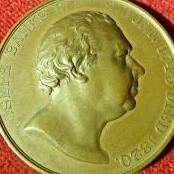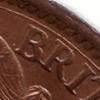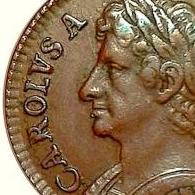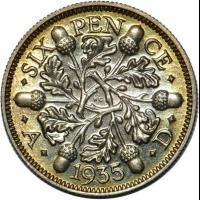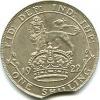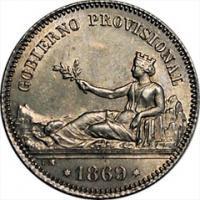Leaderboard
Popular Content
Showing content with the highest reputation on 11/28/2017 in all areas
-
What a year.....well nearly After nearly twelve months of being inside and hardly going out ,regular infusions ,tablets of which some weeks i was having twenty four a day ,cameras,biopsies and more blood taken out than i thought i had. I have just got the all clear...............BOOOOOOOOOOOOOOOOOM. Now back to getting fighting fit again Thank you to the forum for helping to keep my sanity4 points
-
Stuck for a Christmas prezzie for the missus.Why not buy her this Rod Stewart cameo ring ? https://www.ebay.co.uk/itm/Very-Old-Cameo-Ring-Metal-Detecting-Find/1528065966642 points
-
True story. My family & loved ones (not necessarily the same people) have strict instructions that, in my final hours, they should play Pressure Drop loudly. When I don't twitch, call the undertaker. Even now as I slowly approach my 70th, I still have to dance to Mr. Hibbert. And "What's my number" also has the same effect. Edit: A cry has just come from the other room "You're alive. Turn it down if you want to stay that way!"2 points
-
1 point
-
Only just noticed this post zoo, they're all nice but really like the second from the left1 point
-
1 point
-
In principle, I agree with you. The problem is practicability. In the case of your maximum bid of £500 and the bidding in your favour reaches £480, the auctioneer has to call for £500 as the next bid step. If he gets a room bid he has to accept it, in which case what does he do about the commission bid? Alternatively, he could jump to an asking price of £520 in order to ensure that your £500 bid would win if nobody bids, but the problem then is what happens if nobody bids £520. The auctioneer then has to decide if he allows the original £480 bid and doesn't know if a room bidder would have bid £500, thus losing the seller £20 and his own fees, or he knocks it down at £500 and the commission bidder gets charged the extra £20, when the auctioneer doesn't know if a room bidder would have gone to £500 at all. Either way he (the auctioneer) looks dishonest and so I can understand why they tend to operate as I described earlier - it avoids most of the hassle. Also, of course, he's got a million other things to be doing at the same time as trying to sort out max bids v room bids. Basically, you win some, you lose some. In 20 years of auctions, many in the days before live bidding, I've only ever had one that went wrong with the scenario here, so I'm guessing it isn't a major problem.1 point
-
To misquote my hero Tony Hancock, "It might be only a coin to you, Pete, but it's life and death to some poor (collector) wretch"1 point
-
There is at least one auction house (it may be Goldberg) that allow you to specify an incremental bid or halfbid in the event of your highest bid being matched. Seems a good idea. I still have a problem with the case you illustrate. If I submit a maximum bid of, say, £500, I expect the lot to go to at least the next bidding step to overbid me. I think that is a reasonable and logical assumption. So, when the auctioneer takes my bid of £480 in sequence and asks for a bid of £500, he should in my opinion have to take a higher bid to outbid my commission bid. But clearly, this doesn't necessarily happen.1 point
-
It has happened to me also, and the explanation I posted is basically the one they gave me when I queried it. The problem with your suggestion is that a room bidder having bid the £500 as requested by the auctioneer would then have to be told that his bid wasn't valid as they have another on commission at the same value, which would raise some clear issues for the auctioneer. Does he give priority to the commission bidder or the room bidder? If to the commission bidder how does he explain this to the room bidder who is stood in front of him and has had a perfectly OK bid rejected? He could try forcing the room bidder up further by claiming a slightly higher commission bid than he has on the books, or by raising the level of the next bid so that it would be above that of the commission bidder e.g. to £525 in the case I described. However, in the first case the risk is that the room bidder doesn't bite. The auctioneer then has to sell to the commission bidder at his top price, but risks the wrath of the room bidder if and when he discovers this from the list of realised lots. In the second case, the auctioneer gives away the commission bidders top price. This might be acceptable, I suppose, but its all very problematic.Given that he has to make these judgments on the hoof and in a very short timescale, operating as he does and risking some occasions when things go wrong for the commission bidder is probably the simplest option. One way round this conundrum which was suggested to me by the auction house I refered to above would be to word your bids in the form £500 + 1. This signifies to the auctioneer that if there is a tie between your maximum commission bid and a room bid then you are prepared to go up one more increment. Of course you have to decide what your top bid would then be based on the increments used by the auctioneer for the price range of the item, and this only applies where there is a tie of the sort I described. I don't know if this approach is widely used by auctioneers or not. I've never tried to use it, although I am sometimes a bit nervous when I see that my maximum bid has won a lot, as I'm never quite sure, until the invoice arrives, whether I've won or not!1 point
-
1 point
-
1 point
-
1 point
-
Cheers Andrew. Seems everyone and their dog is in for a chunk of those!! ???1 point
-
1844 with damage is worth an 1874 without, so an 1874 with damage as seen at £31 is too much as it's a common date. Maybe 20-25 tops.1 point
-
Mostly pretty worthless even if not 'burial green' these days as so many have been found.1 point
-
No need to dream. The vast majority of Roman coins found in this country are mid-to-late Empire bronze, exceedingly common and with average wear, worth very little especially if 'burial green'.1 point
-
If they were Roman (or any other significant type of treasure as deemed by the Treasure Act), they would be classed as a hoard and would need to be declared, as I guess they weren't previously disclaimed under the Treasure Trove law (were they? ... paperwork required). If you can get permission I'd love to help! Its a great tale, it would be good to finally lay it to rest either way.1 point
-
1 point

